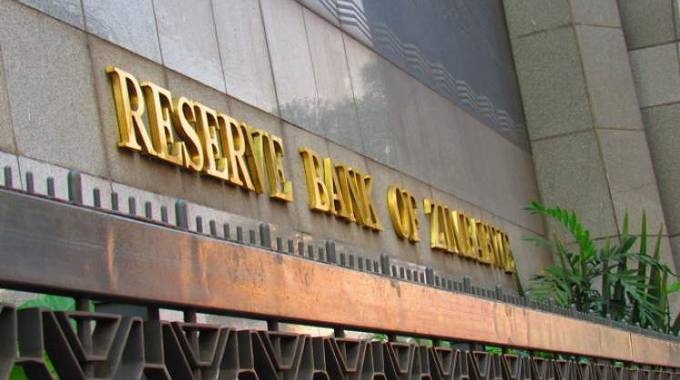
Prosper Ndlovu, Business Editor
THE Reserve Bank of Zimbabwe (RBZ) has suspended the 30-day foreign currency balance liquidation requirement for exporters as well as its attendant penalty system so as to minimise the impact of Covid-19 (coronavirus) outbreak on the economy.
The central bank has also clarified concerns around the use of foreign currency on domestic transactions, which were previously deemed illegal under the mono-currency dispensation adopted since June last year. The new measures are contained in an Exchange Control Circular No 3 of 2020 issued yesterday by the Apex Bank to authorised dealers and authorised dealers with limited authority in terms of Section 35 (1) of the Exchange Control Regulations Statutory Instrument 109 of 1996. In the circular, RBZ head of exchange control directorate, Mr Farai Masendu, said the latest interventions were meant to buttress recent pronouncements by the RBZ Governor, Dr John Mangudya, in response to the financial vulnerabilities caused by the Covid-19 pandemic.
“The 30-day liquidation requirements on unutilised foreign currency balances for exporters has been suspended until further notice when markets stabilise from the effects of Covid-19,” said Mr Masendu.
“All exporters should be treated as ‘green nagged’ for the smooth administration of all export receipts until further notice. The flagging of importers and penalty system has also been suspended until further notice.”
Mr Masendu said all payments processed shall continue to be reported in the CEBAS (Computerised Exchange Control Batch Application System) system, adding that all supporting documentation should be filed separately for onsite inspection after the lockdown period. He also stated that authorised dealers shall continue to process applications for extensions of acquittal period, cancellations, amendments and exceptional acquittal of foreign payments in line with existence exchange control framework.
Mr Masendu also clarified the use of free funds or foreign currency payments for domestic transactions.
“As authorised through Statutory Instrument 85 of 2020, individuals may now pay for goods and services chargeable in Zimbabwean dollars, in foreign currency using free funds at the ruling exchange rate of the day of payment,” he said.
“The payment may be done through cash, transfers and/ or electronically.
Consistent with the provisions of Exchange Control Circular No 8 of 24 July 2019, international organisations, non-governmental organisations (NGOs) and embassies holding free funds, shall continue to transact in line with the provisions of the said Circular.” Free funds include all diaspora remittances, funds held and paid by NGOs and embassies, as well as salaries paid in foreign currency by exporting entities including cotton, tobacco and gold producers.
Mr Masendu further explained the treatment of proceeds from domestic transactions by corporates.
“In line with these new arrangements, corporates receiving free funds from domestic transactions, will be required to deposit such funds in Nostro (domestic) FCAs for own use, either for foreign or for domestic payments.
“This means that inter-FCA transactions have been enabled to facilitate these payments,” he said.
“These domestic transactions by corporates should continue to be done through bank transfers, as well as using plastic money such as Point of Sale (FOS) machines.”
In light of the above, the RBZ said banks and payment providers should ensure that their infrastructure and systems are equipped and configured to handle payment arrangements and further promote electronic payment so as to minimise the handling of cash and foster social distancing.
Regarding submissions of exchange control returns he directed authorised dealers to continue to submit exchange control returns in the usual manner and prescribed formats.
“Any challenges in obtaining information to ensure compliance with these reporting requirements, should be communicated to Exchange Control,” said Mr Masendu.
